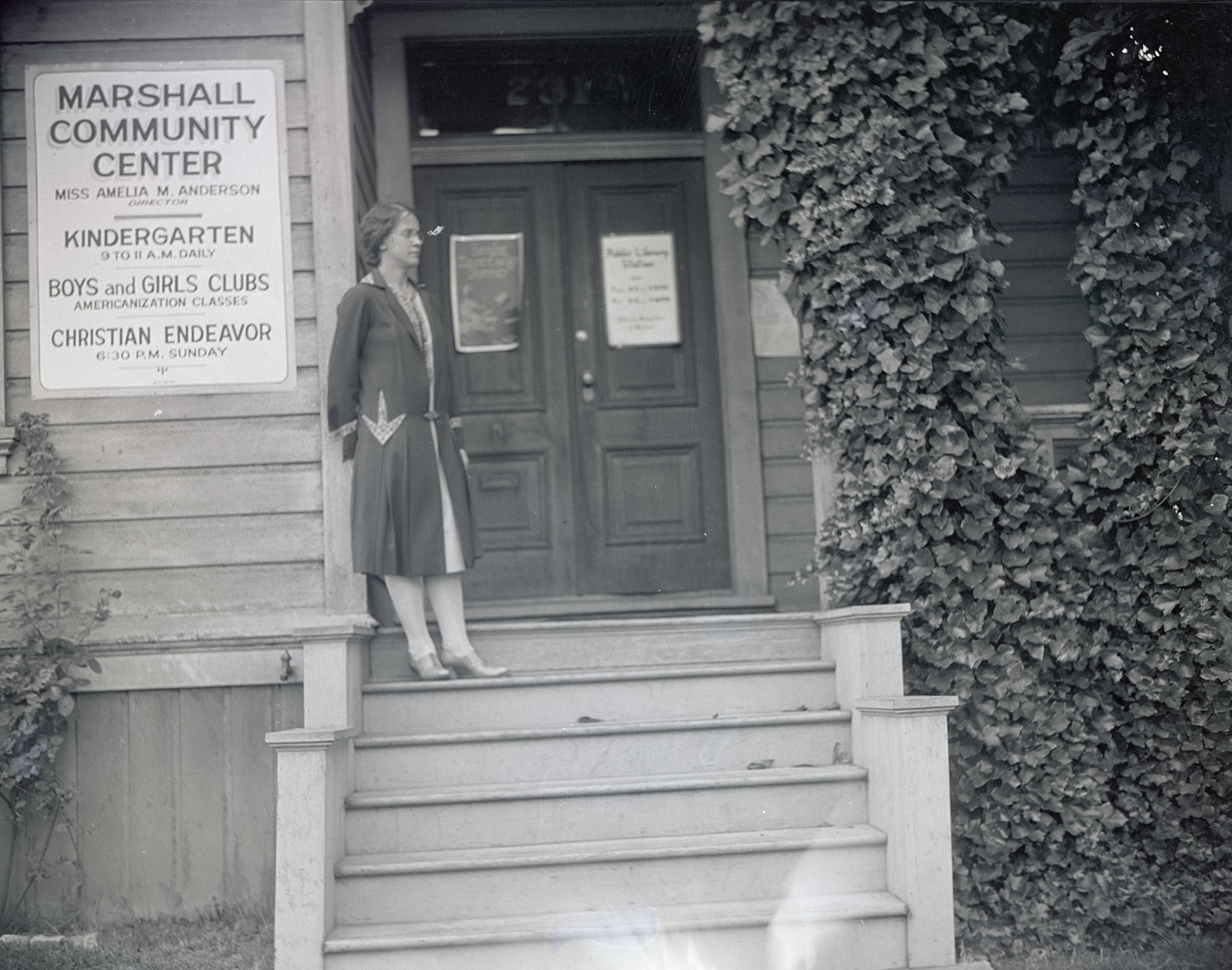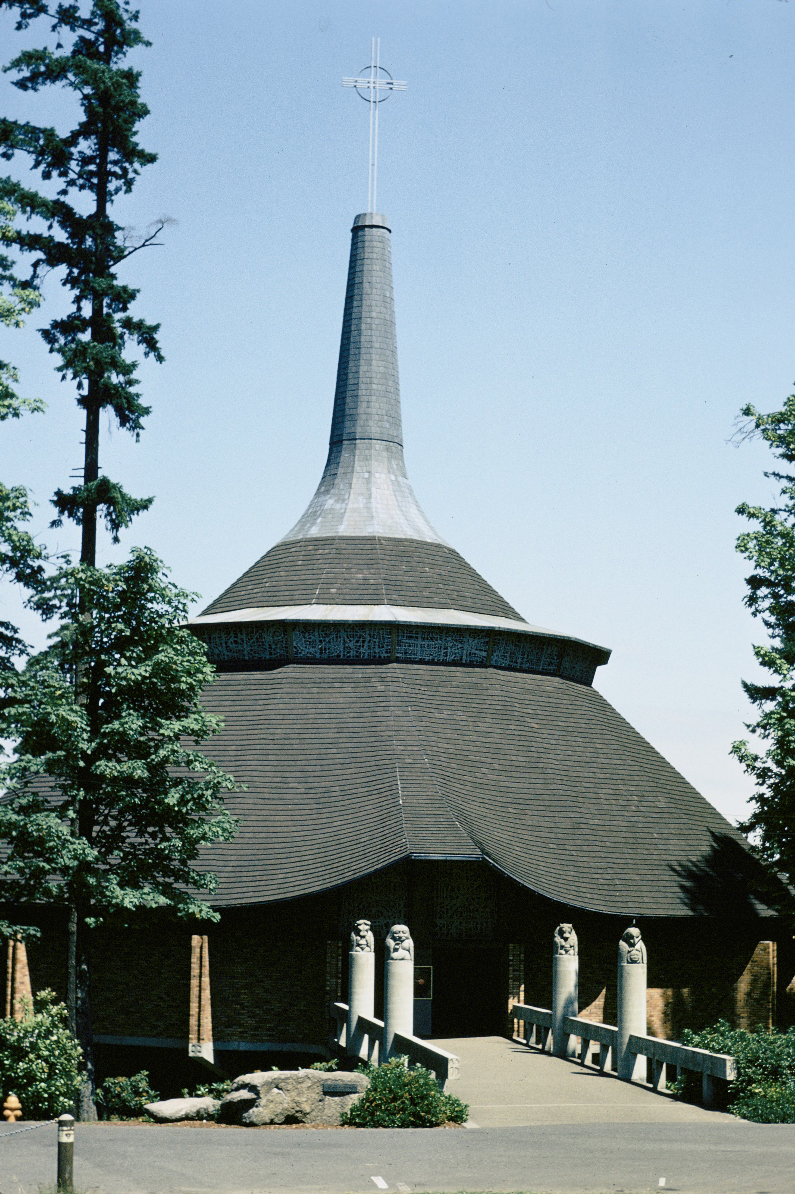In over five decades of ministry in Oregon (1941-1994), the Rev. Dr. Paul S. Wright became one of the state’s most influential, successful, and beloved protestant ministers. During an era when church leaders were often public figures, Wright took major leadership roles in both ecclesiastical and civic circles. He was a visionary who helped establish lasting Oregon institutions such as Lewis & Clark College, Friendly House, Menucha Retreat & Conference Center, and Holladay Park Plaza. He was a prominent civic leader who championed numerous social causes and who took up the cause of racial desegregation before it became comfortable to do so. He was an effective preacher and orator, whose resonant voice and eloquence captivated audiences across Oregon and the nation.
Wright’s early life unfolded far from Oregon. Born in 1895 in Persia (now Tabriz, Iran) to a missionary family, Wright graduated from the College of Wooster in 1917. He enlisted and served in the medical corps in World War I and later attended McCormick Theological Seminary in Chicago. Ordained as a Presbyterian minister, Wright served churches in North Dakota, Minnesota, and Oklahoma before he was called to the First Presbyterian Church in Portland on September 22, 1941. Under his leadership, First Presbyterian Church grew to become the sixth largest Presbyterian congregation in the United States. In 1955, he was elected to lead the national Presbyterian Church in the United States of America (PCUSA) as moderator. He retired from First Presbyterian Church in 1973.
Wright collaborated with Dr. Morgan Odell in 1942 to secure the Presbyterian church’s agreement for permanently establishing Lewis & Clark College in southwest Portland on the former Lloyd Frank estate. This began a fifty-two-year affiliation with the college, where he served as a life trustee and as theologian-in-residence from 1973 until his death. The Paul S. Wright Professorship in Christian Studies was established at Lewis & Clark in 1998 to honor Wright’s rich history and influence. His civic contributions included working for racial justice and school desegregation, and he was awarded the E.B. MacNaughton Civil Liberties Award in 1963 for his efforts to achieve racial equality in Oregon.
In 1990, Wright became one of the oldest Oregonians to undergo successful heart bypass surgery. He remained active until his death in 1994 at 99 years of age.
As a man of faith and action, Wright’s greatest legacy was his inspiration and motivation of others. His friend Senator Mark O. Hatfield said this about him: “In Paul Wright’s dynamic Kingdom building, he was identified with many, many great works touching the lives of individual people and institutions.”
-
Paul S. Wright in 1973.
Lewis & Clark College Special Collections and Archives -
![]()
First Presbyterian Church, Portland, with steeple damaged by lightning, 1920.
Oregon Historical Society Research Library, Digital Collection, Oregon Journal Negative Collection; Org. Lot 1368; Box 376; 376G0315
-
![]()
Church house, First Presbyterian Church, Portland, c.1920.
Oregon Historical Society Research Library, Digital Collections, Oregon Journal Negative Collection; Org. Lot 1368; Box 376; 376G0184
Related Entries
-
![First Presbyterian Church (Portland)]()
First Presbyterian Church (Portland)
First Presbyterian Church of Portland, organized in January 1854 just t…
-
![Friendly House, Inc.]()
Friendly House, Inc.
The Marshall Street Community Center, founded by the socially minded Fi…
-
![Lewis & Clark College]()
Lewis & Clark College
Lewis & Clark College, a private and academically selective liberal art…
-
![Menucha Retreat and Conference Center]()
Menucha Retreat and Conference Center
Menucha, a prime northwest conference center, is located on a windy blu…
Map This on the Oregon History WayFinder
The Oregon History Wayfinder is an interactive map that identifies significant places, people, and events in Oregon history.
Further Reading
“Pastor Called to Serve Here.” The Oregonian, September 23, 1941, p. 10.
Duntley, Jr., Mark A. “Courage, Perseverance, and Vision form Paul Wright’s Pioneering Spirit,” The Lewis & Clark College Journal, Vol. 71, Number 1. Fall, 1990.
Oral history interview with Reverend Paul S. Wright. January 1, 1980. SR 9205.









